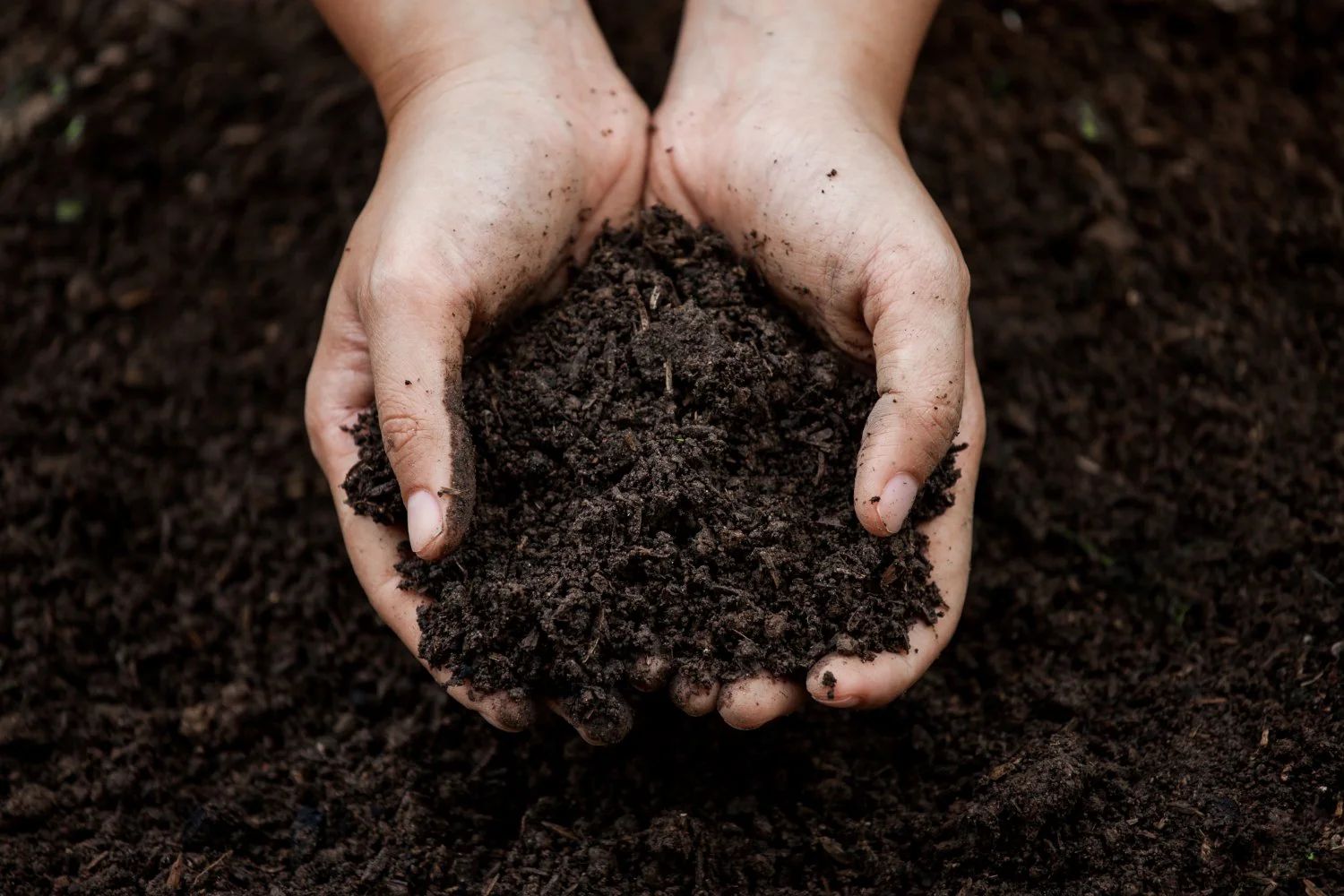July 2021
In this manual entry, you will learn how our consumption choices are linked to our soils and how we can adapt our consumption patterns so that we do not harm our soils.
What is ‘soil’?
Our consumption choices can help protect our soil – but what is soil?
Soil is a mixture of organic and inorganic matter, air, and water. It plays many vital roles in sustaining life:
Growing food and other resources (and determining their quality).
Preventing floods and droughts by storing and filtering water.
Hosting a quarter of the planet’s biodiversity.
Regulating the atmosphere and waste recycling.
The importance of Soil
Soil is important and carries many benefits:
The nutrient content of a plant is related to that of the soil, meaning healthier soil grows healthier produce. Biodiversity is key for soil staying nutrient-rich.
It retains and filters water, reducing groundwater contamination.
Soil with a poor water-retention capacity requires additional resources to transport water to be available to end-users in that area.Healthy soils help combat climate change by hosting plants and ecosystems that capture CO2 and also have a cooling effect on their surroundings.
SUSTAINABLE PRACTICES TO CONSERVE SOIL
Balancing human needs with ecological conservation requires sustainable soil management and agricultural practices, which is crucial for healthy and productive soil in the long term. There are various things consumers can look out for to support this beneficial development:
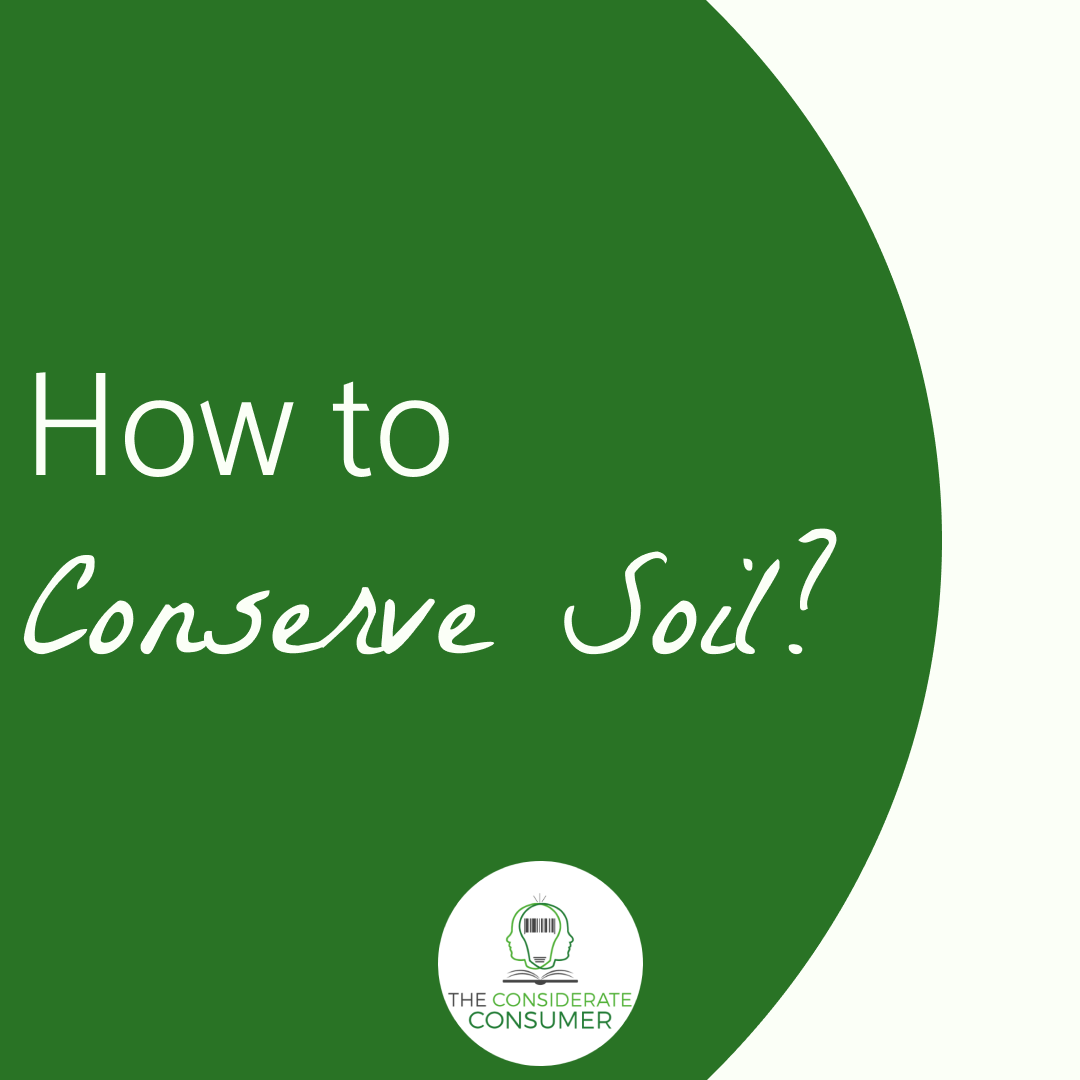

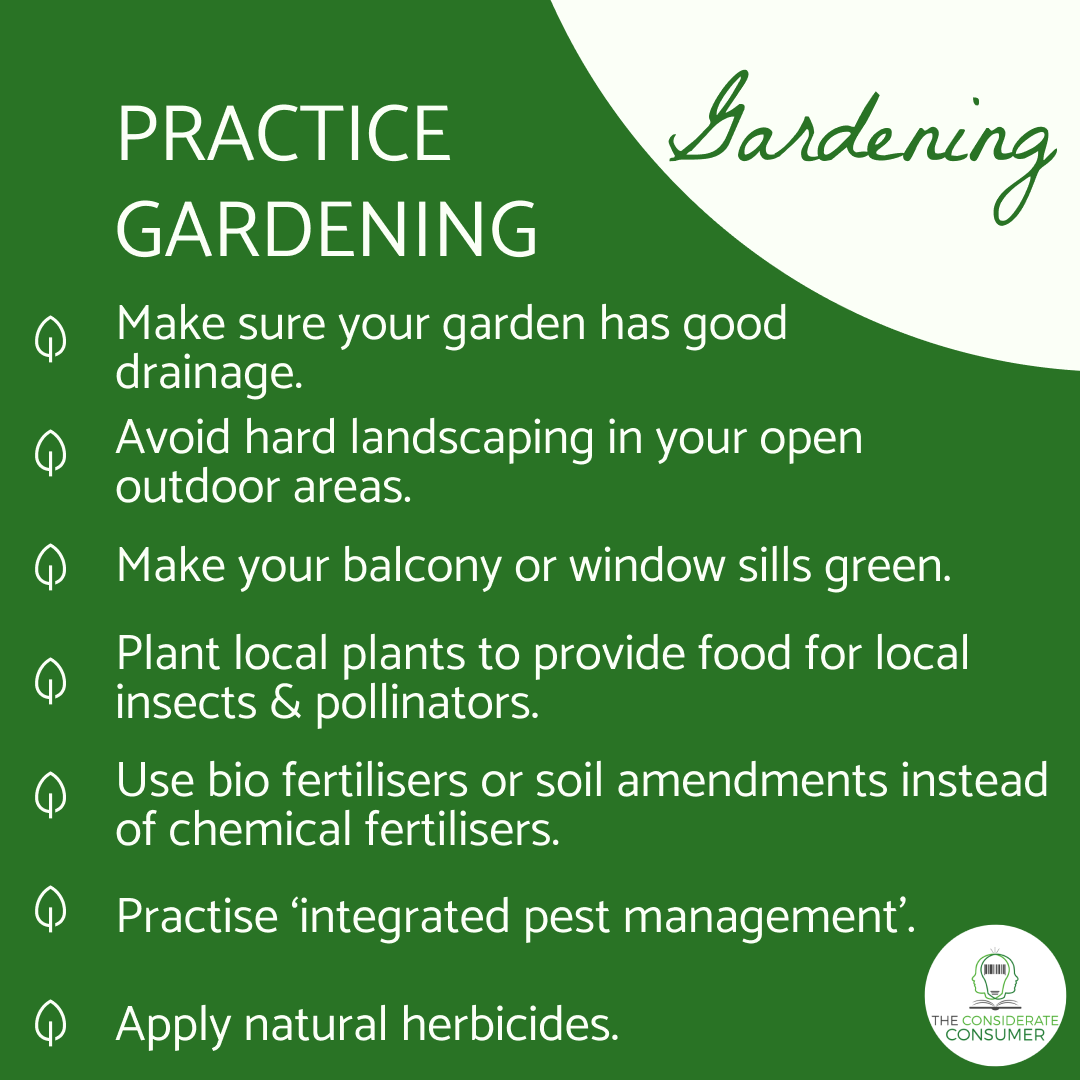
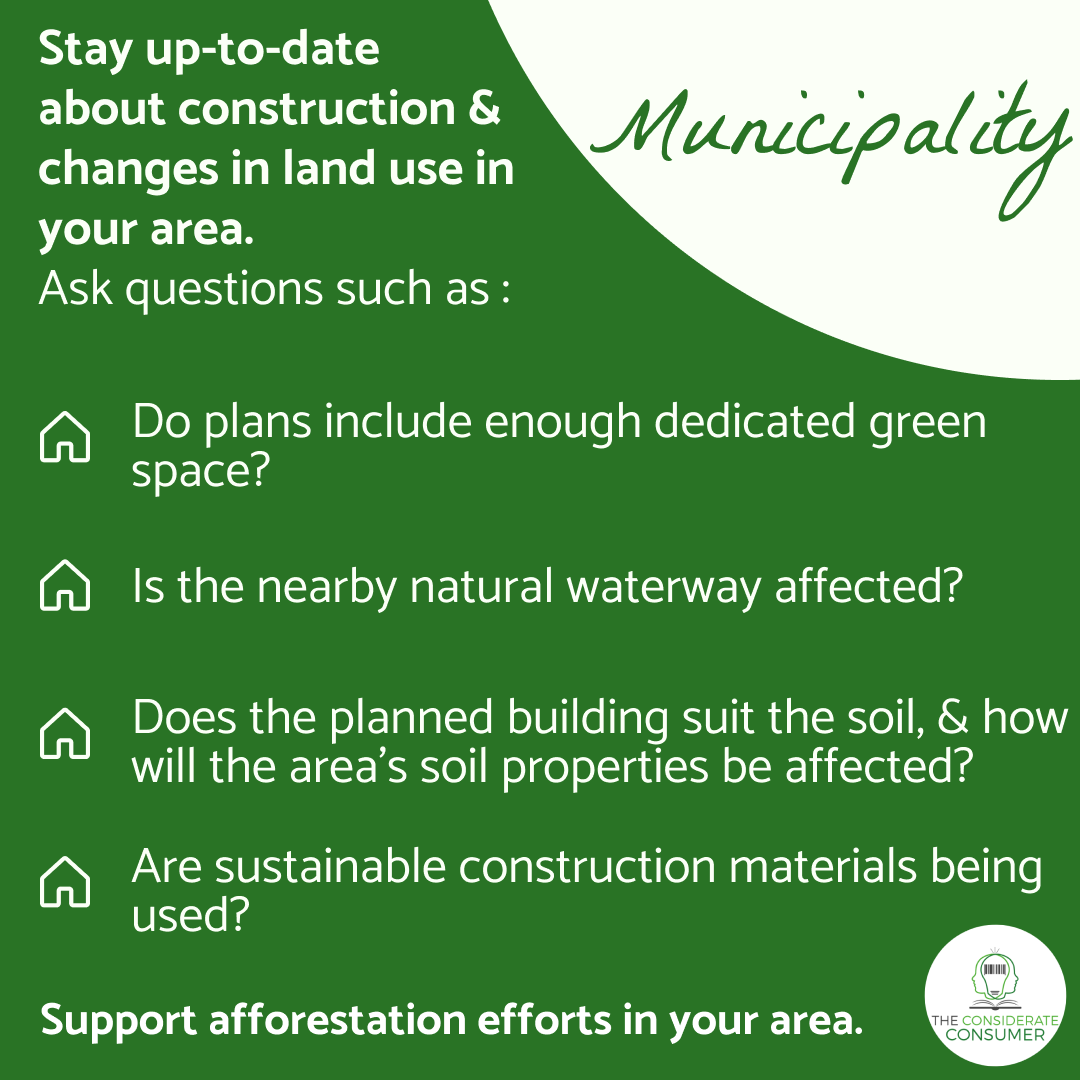
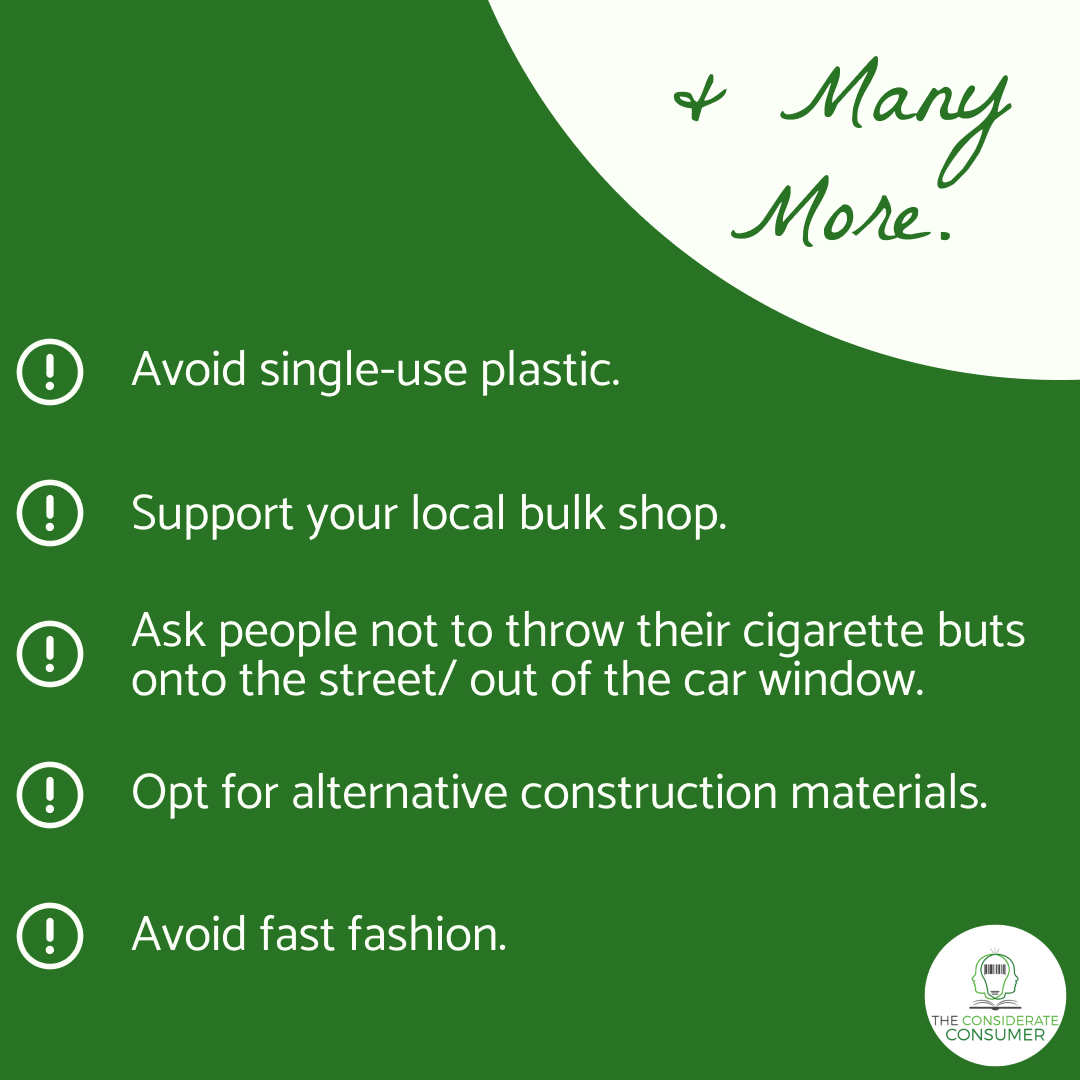
Look for labels that certify food from sustainable production.
Databases such as How Good provide comprehensive information on a product’s sustainability.Opt for organic to incentivise producers to avoid chemicals that diminish soil health.
Avoid wasting food, not just for obvious reasons but because every piece of thrown-out food is also a waste of the resources used to make it – including good soil.
The textile industry is largely responsible for soil degradation, giving another reason to avoid fast fashion.
Make sure your garden has good drainage. That way, plant roots receive water and nutrients properly. Avoid hard landscaping in your open outdoor areas.
Stay up-to-date about construction and changes in land use in your area, as these can greatly affect soil quality. Ask questions such as:
Do plans include enough dedicated green space?
Is the nearby natural waterway affected?
Does the planned building suit the soil, and how will the area’s soil properties be affected?
Are sustainable construction materials being used?
Practice gardening or support afforestation efforts in your area.
Make your balcony or window sills green, or make your garden fertile and plant local plants to provide food for local insects and pollinators.
Sustainable agriculture can also apply to gardening to support the ecosystem and quality of soil, water and air. Use bio fertilisers or soil amendments instead of chemical fertilisers.
Practising ‘integrated pest management’ ensures, amongst other things, that beneficial species thrive.
Natural herbicides from biochemicals released by plants can be purchased as sprays or oils. These can even be made yourself at home.
Opting for alternative construction materials can also positively impact soil quality.
Learn more
Check our sources: Bibliography →

